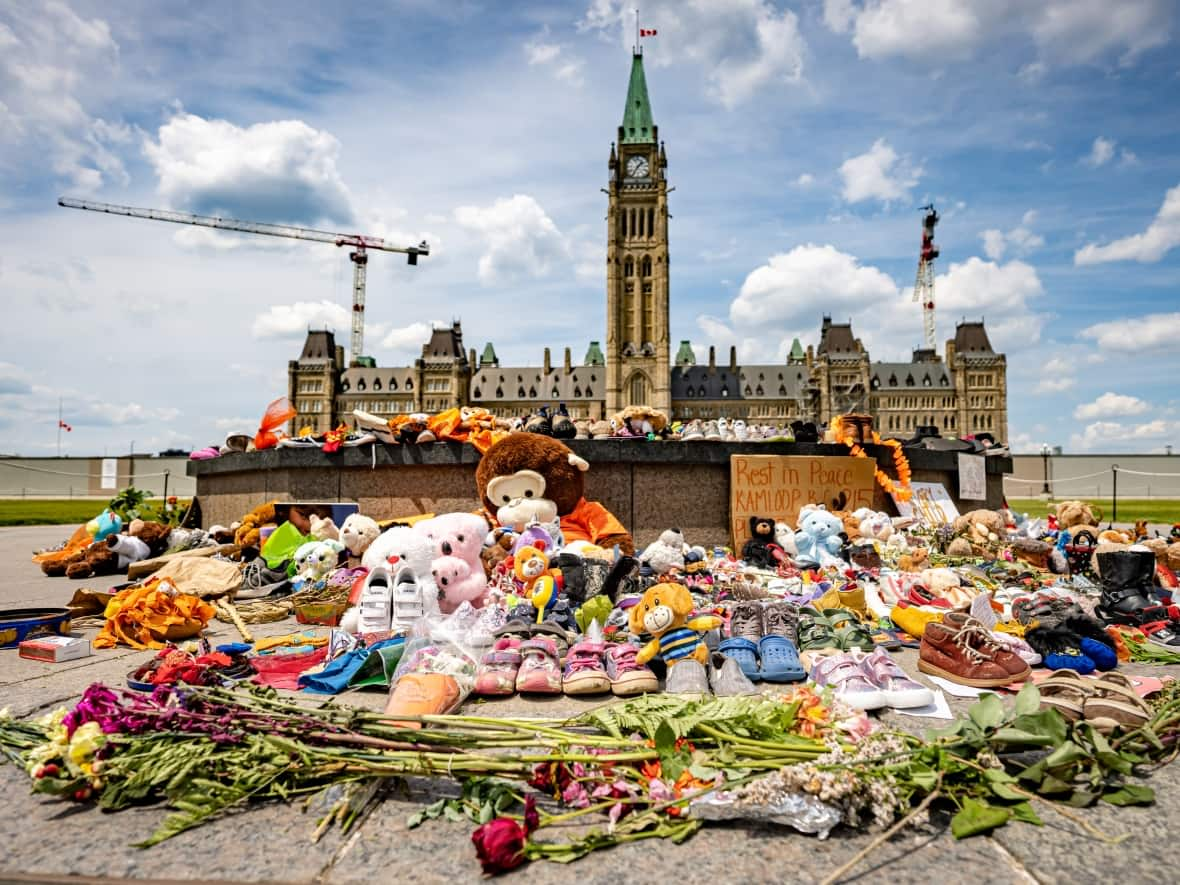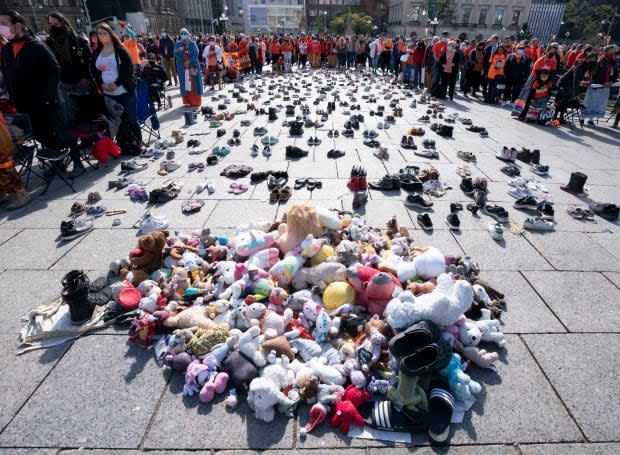Parliament Hill memorial to residential school children taken down

With winter weather approaching, hundreds of children's shoes that were placed on Parliament Hill following this summer's discovery of unmarked graves at several former residential schools were removed Friday.
The memorial spontaneously sprung up in front of Centre Block and around the Centennial Flame after the Tk'emlúps te Secwépemc First Nation announced it had discovered the buried remains of an estimated 215 children on the grounds of the former Kamloops Indian Residential School.
It was one of several memorials with shoes and children's toys that appeared across the country, after the discovery sparked a national reckoning involving Canada's historic and ongoing treatment of Indigenous people.
In Ottawa, the Parliament Hill memorial served as a compelling focal point for last month's National Day for Truth and Reconciliation.
A spokesperson for Crown-Indigenous Relations and Northern Affairs Canada told CBC Friday that many of the items that comprised the memorial were in "an advanced state of degradation."
The department first consulted with Tk'emlúps te Secwépemc and the Cowessess First Nation, which also reported finding hundreds of unmarked graves at a former residential school in Saskatchewan, said spokesperson Megan MacLean.
MacLean said the two nations advised the removal of the memorial should be directed by the Algonquin Anishinabeg First Nation on whose traditional territory Parliament Hill sits.
Sacred items would be be entrusted to Algonquin Anishinabeg elders, MacLean said.
Others would be donated, kept for educational purposes or disposed of in line with the City of Ottawa's guidelines.



